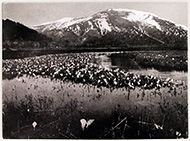The perils of faulty scholarship of prints and seals
Scene: A gathering of the Moscow elite — oligarchs, actresses, writers, artists, a soupçon of French and Italian aristocrats. Fine wine flowed freely, like the décotellages of the ladies disrobed of their endangered-species furs. Political scandals and international affairs having been exhausted, the talk turned naturally to the Old Days. ‘I just adore medieval seals’, one of the most gorgeous paragons of Russian cinema let slip in a moment of inebriated abandon. ‘Particularly the double-eagle Sarwerden — fierce and gentle, soaring and grounded, at the same time’, she went on, as the guests abandoned their own lines of enquiry and tuned in, ineluctably drawn to the stunningly shapely woman’s surprisingly erudite repartee.
‘The Sarwerden is so simple, yet so much more elegant than the later Baroque versions,’ she said as she turned effusively in my direction, her Hermes 24 Faubourg wafting toward my nostrils and mingling with the scents of cognac and brandy. ‘Don’t you think so?’ And suddenly, her mischievous eyes, eyes that had transfixed every man within sight of them, turned to me imploringly as if seeking a cue to help her recall some lost lines, and declared, ‘You’re an artist! What exactly was the year of the Sarwerden double-eagle seal?’ ‘1145’, I said unhesitatingly, as if I were completely attuned to Larisa’s (for that was her name) infatuation with medieval seals. The look of relief that came over her face at this revelation was palpable. It expressed the completion of her most secret desires, and an instant command of History that excited the envy of everyone in the room (and beyond — word of such matters travels fast). And given the presence of several whose families could themselves easily be traced to that very date, this was no small feat.
Hardly had she had a chance to express her fondest gratitude to me than one of the menials pouring the drinks breathed a stage whisper intimating ‘Sorry, Guv’nor, it was 1185 — see here, this Byzantine style didn’t make it to Europe until well after the middle of the 12th century’. Larisa instantly turned her lovely back to me, as did everyone else, which was not easy to do, as they were all dispersed throughout a very large set of rooms. But so intense was their disgust at what struck all and sundry as a sort of fraud on my part, that it was as if I, theretofore an honoured guest, had suddenly become a non-person.
A silent parting opened up, with that exaggerated politeness that European aristocrats and Russian arrivistes use to express their uttermost contempt, enabling me to exit the scene without further embarrassment. And so, beset by a shame deeper than that of Raskolinikov after he took an ax to a defenseless old woman, I walked out into the cold Moscow night, my worn-out overcoat pitifully impotent against the icy wind coming off the Moscow River. I stared at the river below, which seemed to beckon me into its cold embrace, a vision of Larisa appearing just beneath its wavy surface…


